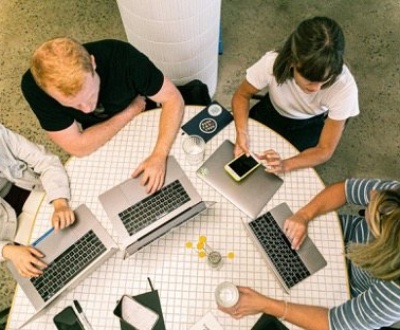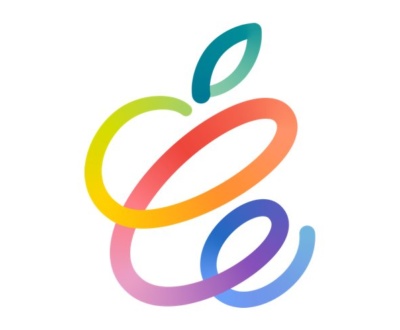Apple and Qualcomm are engaged in what will likely be a long and epic legal battle. Apple has disputed Qualcomm’s legal right to charge heightened royalties for use of its tech, while Qualcomm is trying to uphold its requirement that Apple pay a percentage of the iPhone’s revenue in return for the use of Qualcomm patents. As a result, lawsuits from both sides have been filed in multiple countries.

In the United States, Apple is suing Qualcomm for a tidy $1 billion — and it has also filed a lawsuit in China against the company for $145 million, and it has another suit pending in the United Kingdom. Qualcomm has followed with its own countersuits in Germany and China.
Two years after Apple sued Qualcomm over $1 billion in unpaid royalty rebates and anticompetitive patent licensing practices, the tech heavyweights are set to face off in a San Diego courtroom. The trial begins this week with jury selection. Pity the poor jurors selected.
Apple manufacturers Foxconn, Pegatron, Wistron, and Compal, whose complaints have been merged with Apple’s, allege that they have collectively overpaid Qualcomm approximately $9 billion in royalties, a figure that could be tripled under antitrust laws to $27 billion, according to The New York Times.
Here’s everything you need to know about the legal battle so far.
Apple has essentially conceded its German battle with Qualcomm by surrendering its ability to use Intel modems in the iPhone 7, 8, and X in that country. Instead, Apple will begin to resell the affected iPhone models — but with Qualcomm modems installed instead.
The ban came about as a result of Qualcomm’s battles with Apple in Germany. The chip manufacturer won an injunction against Apple in December 2018 that meant it could not sell the affected iPhone ranges within Germany. German courts cracked down on Apple after it was ruled that Apple was infringing on Qualcomm’s intellectual property.
The ban meant that the affected ranges of iPhones were no longer available for sale anywhere in Germany, and with sales being lower than Apple’s forecasts, it’s possible this lack of sales within a prominent EU nation has forced Apple’s hand. It’s important to note this isn’t Apple circumventing the ban through clever trickery — instead, it’s doing exactly what Qualcomm wants.
After the decision was made by the Munich Regional Court, Apple swiftly shared a press release saying that all iPhone models would continue to be available through resellers and shops of phone carriers at around 4,300 locations in Germany.
The same court ordered Apple to stop making those claims. The press release that Apple put out after the December court case is misleading, the court decided, because Apple had been ordered not only to stop selling to iPhone models themselves, but also to recall the iPhones from resellers.
“The press release is misleading because it contains statements that are at least potentially deceptive about the availability of the goods,” the judges wrote, according to a copy of the court decision obtained by Bloomberg News. “The statement conveys the impression of unlimited availability.”
Earlier, Apple was ordered to stop selling iPhones in China, but the company seems to have found a bit of a loophole against the preliminary injunction. According to Apple, the patents in question are only being used in earlier versions of iOS — so phones with more recent forms of the operation system are still fair game. In a bid to resolve the issue quickly, Apple will be pushing a software update in China to Chinese iPhones. With the update, Apple says it believes its in compliance of court orders, and able to continue selling iPhones. Ultimately, it will be up to the court to decide if Apple is still infringing on Qualcomm patents or not.
Of course, Qualcomm isn’t too happy that Apple is still selling iPhones in China. The company has reportedly presented evidence to the court that Apple is still selling the iPhone (which wouldn’t have been hard given the number of Apple Stores), and it all be asking the court to uphold the injunction.

Apple has also said that a sales ban of the iPhone in China could force the company to settle with Qualcomm, which may end up hurting China’s smartphone industry.
“Apple will be forced to settle with the Respondent, causing all mobile phone manufacturers to relapse into the previous unreasonable charging mode and pay high licensing fees, resulting in unrecoverable losses in the downstream market of mobile phones,” sad Apple in a court filing, which was verified by Bloomberg.
China grants Qualcomm preliminary injunctions against Apple
The Fuzhou Intermediate People’s Court of China has granted Qualcomm’s request for two preliminary injunctions against four of Apple’s Chinese subsidiaries. The action has been taken as a result of Qualcomm’s claims that technology found in the iPhone 6S, iPhone 6S Plus, iPhone 7, iPhone 7 Plus, iPhone 8, iPhone 8 Plus, and iPhone X infringes on two of Qualcomm’s patents. This comes after the Chinese patent office, SIPO, found the patents to be valid.
While the compensation sought by Qualcomm is currently not known, it is known that the patents in question involve adjusting the size and appearance of photographs, and managing applications on a touchscreen device.
Aimed at Qualcomm’s heart
The fight is an existential one for Qualcomm, at least as it has operated for most of its nearly 34 years in business. The company, based in San Diego, pioneered a type of cellular communications in the 1990s that later became a mainstay of mobile devices. That innovation allowed Qualcomm to charge patent royalties on nearly every smartphone sold, which generates the bulk of its profits.
Qualcomm has historically charged about 5 percent of the wholesale price of a mobile phone. Because of Qualcomm’s various patents, companies building phones that would connect to cellular networks must pay that fee for every phone — even if the phone does not actually use Qualcomm chips.
Phone makers have little leverage to negotiate for lower rates, the F.T.C. argued in its suit, which was filed in January 2017, that leans partly on Apple’s contentions.
Because Qualcomm holds monopoly positions in two varieties of wireless chips, the F.T.C. argued, handset makers feared that Qualcomm could cut off shipments if they balked at paying royalties. Qualcomm insists it never used that tactic. Rival chip makers, denied patent licenses from Qualcomm, have fled the market while suppliers like Intel are struggling, the F.T.C. said.
The fight has also migrated to Washington. A little over a year ago, Qualcomm was spared a hostile takeover bid by Broadcom after the Trump administration blocked the deal on national security grounds. Qualcomm has raised the possibility that any court-ordered changes to its practices would threaten investments in wireless technologies that are critical to the American military and intelligence gathering. The chip maker also hired the opposition research firm Definers Public Affairs, which has distributed anti-Apple research to reporters.
Many Qualcomm customers, partners and rivals are involved in the trial that starts this week. Tim Cook, Apple’s chief executive; Philip Schiller, the company’s senior vice president of worldwide marketing; Qualcomm’s chief executive, Steven Mollenkopf, and its co-founder Irwin Jacobs could all be called to testify.
One of the thorniest topics is whether Qualcomm’s royalty rates hurt consumers by raising smartphone prices. The F.T.C. contends they do, though it didn’t quantify the impact. Pricing is also at the heart of a separate private case against Qualcomm brought on behalf of smartphone purchasers, which seeks $5 billion in aggregate damages.
Qualcomm insists its royalties have negligible effect in the mobile market, because competition is sharply reducing prices on many phones and new features have simultaneously pushed flagship models above $1,000. It is appealing a judge’s ruling granting class-action status in the consumer case.
Qualcomm accuses Apple of giving chip secrets to Intel
In the most recent episode in the legal saga, Qualcomm has accused Apple of stealing valuable trade secrets, and giving them to Intel to boost the performance of Intel’s chips on iPhones.
The claim was made as a part of court filing made on September 24, 2018, in a Superior Court in San Diego. Qualcomm accuses Apple of breaking a master software agreement Apple signed onto when it became a customer of Qualcomm’s, and of sharing elements of source code and tools used in Qualcomm’s chips with Qualcomm rival Intel.
Qualcomm is asking the court to join this claim to a similar case it brought against Apple, in which Qualcomm accused the iPhone giant of not allowing pre-agreed audits on the use of Qualcomm’s source code. However, Qualcomm asserts that these charges are serious enough to stand on their own should the court not allow the two cases to be merged at a planned April hearing. Qualcomm has supplied no evidence yet, but has pointed to discussions between Intel and Apple engineers discovered in the course of an investigation.
ITC lawyers side with Qualcomm
Attorneys representing the U.S. International Trade Commission (ITC) have issued statements supportive of Qualcomm’s claims regarding Apple’s alleged patent infringement, according to a report from Reuters. It is important to note that this case is just getting started, however. The ITC attorneys are only acting as advisers and the judge overseeing the trial is not required to follow the ITC’s advice. That being said, judges do take the ITC’s opinions’ seriously, so the ITC statements are is a blow to Apple’s case.
Qualcomm slapped with $1.2B fine for paying Apple to use its mobile chips
Qualcomm is now facing a $1.2 billion finefrom antitrust regulators in Europe after investigations revealed that Qualcomm had been paying Apple to use its chips over chips from competitors. The practice reportedly began in 2011 and ended in 2016, and included baseband chips that controlled network connectivity and 4G LTE signals.
According to regulators’ investigations, Qualcomm paid Apple “billions of dollars” to shut out competitors. If Apple stopped using a Qualcomm chip in a device, the payments would stop and Apple would be told to return a percentage of the payments made.
It’s unclear exactly how this will affect the chip royalties dispute between the two companies.
Apple hit with $25,000-per-day fine for withholding evidence from Qualcomm in a different case
On Thursday, December 21, 2017, a federal magistrate judge in San Jose, California granted a request for sanctions against Apple, and implemented a $25,000 per day fine for refusing the court’s deadline to hand over evidence in a federal suit against Qualcomm. The fine has been made retroactive to December 16, and will continue through December 29. Should Apple fail to produce all 1.3 million documents outlined in a court order from October, Judge Nathaniel Cousins has made clear his intentions to up the fine even further.
The documents in question are evidence with regard to the lawsuit claiming Qualcomm has imposed unfair licensing terms on smartphone makers. In response to the fine, Apple noted, “We have already produced millions of documents for this case and are working hard to deliver the millions more which have been requested in an unprecedented timeframe.” Qualcomm has not commented.
This fine, oddly enough, is only tangentially related to Apple’s own battle against Qualcomm. While the company isn’t involved in this particular lawsuit, it is cooperating with the government in this investigation (and ought to be all the more eager to do so given its own bad blood with the chipmaker).
Apple countersued Qualcomm for patent infringement, and Qualcomm hits back
In the same late November week, both Apple and Qualcomm filed new lawsuits against each other. Apple was first with the paperwork, and alleges that Qualcomm’s Snapdragon chips infringe on patents owned by Apple. According to Apple, a total of eight patents related to managing battery life have been infringed upon. The patents reportedly revolve around turning off parts of a processor when they’re not needed, and helping sleep and wake functions work more efficiently. The filing specifically revolves around the Snapdragon 800 and 820 chips.
A day later, Qualcomm filed three new patent infringement cases with the U.S. District Court in California, stating 16 more patents owned by the company were being used by Apple without permission. Each is related to the ongoing cases, and seeks a ban on certain iPhone devices.
Qualcomm wanted to ban iPhones in China
Qualcomm called for a ban of iPhones in China, but it has nothing to do with the Chinese government, but rather with Qualcomm’s claim that Apple has stolen patents. According to a Bloomberg report, the chipmaker filed paperwork to ban both the sale and the manufacture of the popular smartphone in China.
It was Qualcomm’s most pointed jab at Apple to that point. A company spokeswoman told Bloomberg, “Apple employs technologies invented by Qualcomm without paying for them,” noting that the iPhone’s power management and Force Touch features are just “a few examples of the many Qualcomm technologies that Apple uses to improve its devices and increase its profits.”
Apple refuted these claims, with a spokesman noting: “In our many years of ongoing negotiations with Qualcomm, these patents have never been discussed. Like their other courtroom maneuvers, we believe this latest legal effort will fail.”
Indeed, it would be a surprise if a Chinese court acquiesced to Qualcomm’s request, as there is no historical precedent for such a move. But in this ugly legal battle, anything is possible.
Qualcomm asks U.S. trade regulators to ban iPhone imports
Qualcomm is seeking to ban certain iPhone models from sale in the U.S., according to a new lawsuit.
On July 7, 2017, the San Diego-based chip maker filed a complaint with the ITC and the U.S. District Court for the Southern District of California requesting a cease and desist order to ban new iPhones from coming into the country. It also asked regulators to bar further sales of iPhones that have already been imported.
Qualcomm alleged that Apple is violating six patents that have to do with extending battery life. Crucially, unlike the other patents at dispute in the companies’ patent spat, it says that none are “essential to a standard,” and that Qualcomm isn’t required by law to license them.
“Qualcomm’s inventions are at the heart of every iPhone and extend well beyond modem technologies or cellular standards,” general counsel Don Rosenberg said in a statement. “Apple continues to use Qualcomm’s technology while refusing to pay for it.”
If a ban were to go into effect, it’s not clear which iPhone models would be affected.
Apple claims that Qualcomm is operating an ‘illegal business model’
Apple upped the legal ante against Qualcomm in June 20, 2017, filings in federal court in San Diego. It said that there was “mounting evidence” that Qualcomm operated an “illegal business model,” and that it sought to extract patent royalties on every wireless device containing its chips.
Specifically, Apple alleged that at least some of the patents Qualcomm wants to get paid for are invalid, and that the chipmaker hasn’t fulfilled its obligation to charge fair and reasonable rates. The iPhone maker pointed to a U.S. Supreme Court ruling in May that limited the ability of patent owners to control the use of their products after they’re sold. Qualcomm, Apple said, is illegally double-dipping by selling the chips it makes and also licensing its technology.
“[We] found continuing — and mounting — evidence of Qualcomm’s perpetuation of an illegal business model that burdens innovation,” lawyers for Apple said. “[It] amounts to a scheme of extortion that allows Qualcomm unfairly to maintain and entrench its existing monopoly […] This is precisely the kind of […] extra-reward system that the [court]” seeks to eliminate.
In a separate filing, Apple asked the court to dismiss several of Qualcomm’s counterclaims, including one that accused Apple of making false statements about the quality of chips made by its competitor, Intel. It also denied Qualcomm’s charges that it’s been pushing for regulatory investigations and interfering with Qualcomm’s contracts with other manufacturers.
Apple may slow iPhone data speeds due to dispute
Qualcomm’s modems are the only ones on the market capable of supporting data transfers up to gigabit speed. But sources tell Bloomberg that Apple doesn’t want to create a discrepancy between similar products, so it will intentionally disable that feature in Qualcomm-powered iPhones to achieve parity with the ones sporting Intel modems.
If this approach sounds familiar, it is more or less what Qualcomm suggested in its countersuit against Apple. The iPhone 7 also featured both Qualcomm and Intel modems — a first for the brand — and Qualcomm believes Apple deliberately capped the performance of its chipsets so they wouldn’t be superior to Intel’s.
Qualcomm files countersuit against Apple
Qualcomm has followed Apple’s lawsuits with one of its own. You can read the full lawsuit here, but it is centered around five complaints against Apple. For example, Qualcomm suggests Apple deliberately didn’t take advantage of the full potential of Qualcomm’s chips in the iPhone 7 in an attempt to prevent them from outperforming Intel’s modems. The iPhone 7 marks the first time in several years that Qualcomm chips are not found in all iPhone variants.
According to Qualcomm, Apple “chose not to utilize certain high-performance features of the Qualcomm chipsets for the iPhone 7 (preventing consumers from enjoying the full extent of Qualcomm’s innovation).” On top of that, when iPhones with Qualcomm chips outperformed devices with Intel’s chips, Apple claimed there was “no discernible difference” between the two.
Another big part of Qualcomm’s suit revolves around Apple’s role in various regulatory suits, and that, according to Qualcomm, Apple has been “misrepresenting facts and making false statements.”
Apple files a third lawsuit against Qualcomm
Apple filed yet another lawsuit against Qualcomm. The two companies were already at war in both the U.S. and in China and now they are head to head in the U.K. According to reports, the U.K. lawsuit was actually filed in January 2017, but it’s only now being noticed after being refiled.
While we don’t yet know specifics about the new lawsuit, it does have something to do with patents and designs, according to a report from Bloomberg. It’s likely that it’s similar to the lawsuits Apple has filed in the U.S. and China.
Qualcomm is ready for a fight
Qualcomm had some fighting words against Apple during a call on its quarterly earnings report. The chipset manufacturer’s CEO, Steve Mollenkopf, said Apple just wants to grab as much money as possible from the lawsuits.
“Apple’s complaint contains a lot of assertions, but in the end, this is a commercial dispute over the price of intellectual property,” Mollenkopf said, according to CNET. “They want to pay less for the fair value that Qualcomm has established in the marketplace for our technology, even though Apple has generated billions in profits from using that technology.”
He said Qualcomm’s patents have “tangibly and meaningfully increased over time,” but the company has never raised its royalty rates. Derek Aberle, president of Qualcomm, chimed in.
“If you peel apart all of the arguments Apple’s making, we believe firmly they’re all without merit,” Aberle said. “At the end of the day, they essentially want to pay less for the technology they’re using. It’s pretty simple.”
But the CEO said Qualcomm will keep supplying chips to the Cupertino company, even while the legal battle rages on.
Apple files patent lawsuit against Qualcomm in China for $145 million
Just a few days after Apple filed a lawsuit against Qualcomm in the U.S. for $1 billion, Apple announces it will also take Qualcomm to court in China — this time for “only” $145 million.
The motive behind the lawsuit is similar to the motive behind the U.S. lawsuit — Apple is basically accusing Qualcomm of not delivering on patent-related promises. Qualcomm isn’t being silent about the suit.
“These filings by Apple’s Chinese subsidiary are just part of Apple’s efforts to find ways to pay less for Qualcomm’s technology,” said Don Rosenberg, Qualcomm general counsel, in an interview with TechCrunch. “Apple was offered terms consistent with terms accepted by more than 100 other Chinese companies, and refused to even consider them. These terms were consistent with our NDRC Rectification plan.”
The U.S. lawsuit
Apple followed in the Federal Trade Commission’s footsteps by suing Qualcomm for $1 billion for “royalties that they had nothing to do with,” according to areport from CNBC.
The Cupertino, California, company claims in the U.S. suit that Qualcomm demanded onerous terms for the use of its patented technology and even sought to punish Apple for cooperating in a South Korean regulatory probe that dove into Qualcomm’s licensing practices — practices that are now under the microscope once again.
Apple’s documents also mentioned that Qualcomm required Apple pay a percentage of the selling price of the iPhone in return for the use of Qualcomm patents, and demanded that Apple use Qualcomm chips exclusively between 2011 and 2016. While Apple did get so-called “quarterly rebates” under the agreement, Qualcomm began withholding those rebates when Apple agreed to work with the Korean Fair Trade Commission. According to the suit, Qualcomm even told Apple that Apple had forfeited almost $1 billion in rebates by working with regulators.
“We are extremely disappointed in the way Qualcomm is conducting its business with us and, unfortunately, after years of disagreement over what constitutes a fair and reasonable royalty, we have no choice left but to turn to the courts,” Apple said in a statement.
Qualcomm responded to Apple’s lawsuit by calling its claims “baseless.”
“While we are still in the process of reviewing the complaint in detail, it is quite clear that Apple’s claims are baseless,” according to Rosenberg. “Apple has intentionally mischaracterized our agreements and negotiations, as well as the enormity and value of the technology we have invented, contributed. and shared with all mobile device makers through our licensing program.”
Rosenberg said Apple has been “encouraging regulatory attacks” on Qualcomm with meritless claims and by withholding information. The chipset manufacturer is referring to the Korean Fair Trade Commission, which placed a hefty $853 million fine on Qualcomm in December for its alleged anticompetitive practices. As with the FTC lawsuit, Qualcomm said it would fight the fine.
This will be a long and brutal legal battle, like the one between Apple and Samsung. How any juror can understand this is beyond comprehension. The main winners will of course be the army of global patent lawyers and court room attorneys.
For everyone else its just higher prices for all mobile phones.
Big sums are at stake. Not just the Billions of $ but also the way that technology is licensed. This core to Qualcomm and myriad of other technology companies. Stay tuned for detail of the fireworks.
About us and this blog
We are a digital marketing company with a focus on helping our customers achieve great results across several key areas.
Request a free quote
We offer professional SEO services that help websites increase their organic search score drastically in order to compete for the highest rankings even when it comes to highly competitive keywords.









